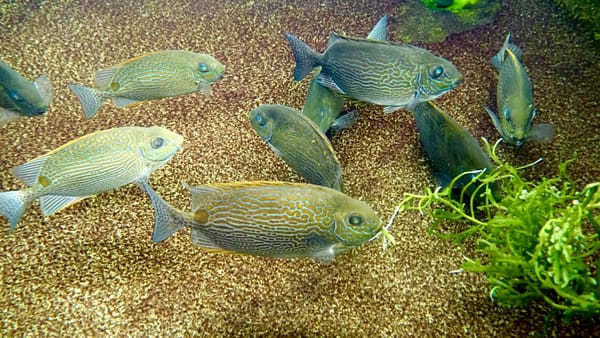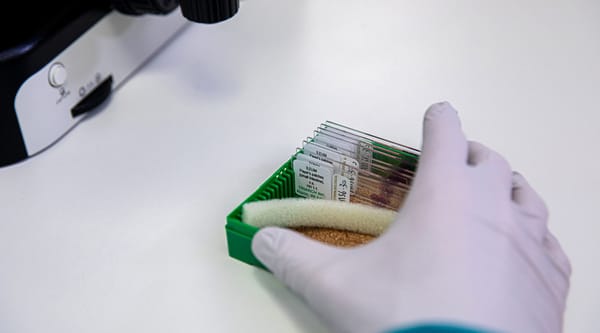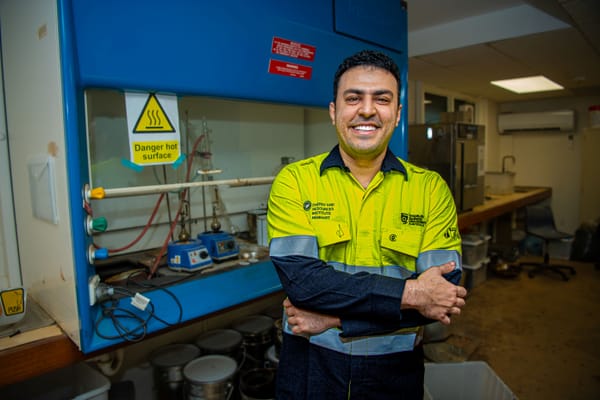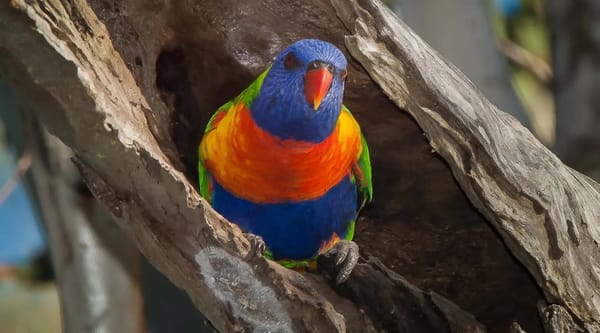ARC funds ‘climate smart’ rice breeding program to reduce crop’s environmental footprint
Picturesque fields of ponded rice paddies belie a severe environmental impact: the world’s most eaten staple food is a water-guzzling, high methane-emitting crop. SCU is tackling this challenge by breeding rice for Australia that grows without standing in flood-irrigation water.

First published on Southern Cross University
The University’s initiative, led by Dr Szabolcs Lehoczki-Krsjak, a Research Fellow in Rice Breeding and Genetics, has the backing of the Australian Research Council.
The ARC has awarded an Industry Fellowship to Dr Lehoczki-Krsjak for ‘Speed breeding with a twist for water-saving low-carbon rice’ worth $417,391 over three years (Project ID: IE240100183).
The Industry Fellowship project will allow Dr Lehoczki-Krsjak to continue exploring sustainable ‘dryland’ rice production in the NSW Northern Rivers where the region’s abundant rainfall is the crop’s water source rather than irrigation.
The Natural Rice Company, based at Kyogle, is the project’s industry partner.
The University’s initiative, led by Dr Szabolcs Lehoczki-Krsjak, a Research Fellow in Rice Breeding and Genetics, has the backing of the Australian Research Council.
The ARC has awarded an Industry Fellowship to Dr Lehoczki-Krsjak for ‘Speed breeding with a twist for water-saving low-carbon rice’ worth $417,391 over three years (Project ID: IE240100183).
The Industry Fellowship project will allow Dr Lehoczki-Krsjak to continue exploring sustainable ‘dryland’ rice production in the NSW Northern Rivers where the region’s abundant rainfall is the crop’s water source rather than irrigation.
The Natural Rice Company, based at Kyogle, is the project’s industry partner.
“My aim is to examine drought and cold tolerance in rice to identify which part of their genome carries stress tolerance genes. This will help us to develop new climate smart varieties of rice.”
Dr Szabolcs Lehoczki-Krsjak
Southern Cross University
/prod01/channel_8/media/scu-dep/news/images/2024/Szabolcs-Lehoczki-Krsjak-with-experimental-rice-crop_20230411_DSC_0695-2-low-res.jpg)
“The ARC Early Career Industry Fellowship will support us in developing a ‘speed-breeding’ method by extending the rice growing period to investigate stress tolerance and to grow and select two crops per year at the nursery,” said Dr Lehoczki-Krsjak.
“My aim is to examine drought and cold tolerance in rice and, once I’ve found genotypes with the necessary stress tolerance level, I’ll dissect their genetic background to identify which part of their genome carries stress tolerance genes. This will help us to develop new climate smart varieties of rice.”
These new ‘climate smart’ dryland varieties will provide significant benefit by transforming rice production to save water and lower the carbon footprint while maintaining productivity and profitability.
Methane, the second-most important greenhouse gas contributor, is produced by bacteria that live in the soil of the flooded paddies under oxygen-restricted conditions.
“These bacteria are way less active in methane emission under dryland production,” said Dr Lehoczki-Krsjak.
/prod01/channel_8/media/scu-dep/news/images/2024/Experimental-rice-crop_20230411_DSC_0913-low-res.jpg)
Dr Lehoczki-Krsjak’s earlier research, conducted in conjunction with Southern Cross University’s Professor Tobias Kretzschmar, has seen the development of new ‘climate smart’ lines of rice that not only help save irrigation water, but also reduce greenhouse gas emissions generated by the Australian rice industry.
These ‘climate smart’ rices include dryland-grown black rices that are high in natural fibre and antioxidant anthocyanins, making them a healthy – and tasty – dietary choice.
“The ARC Fellowship, combined with the Northern Rivers’ unique climatic conditions and its rice growers’ community, together with Southern Cross University’s in-house rice experts and a strong ongoing partnership with our industry partner, The Natural Rice Company, provide the perfect scenario for me to continue my research into climate smart rice,” said Dr Lehoczki-Krsjak.
/prod01/channel_8/media/scu-dep/news/images/2024/Experimental-rice-crop_20230411_DSC_1172-low-res.jpg)
Steve Rogers, General Manager of The Natural Rice Company, said he was excited to continue working with Southern Cross University.
“Producing dryland rice eliminates methane and irrigation. This needs to be the goal of food production into the future.
“This climate we have here in the Northern Rivers is very unique for rice-growing. It’s probably the most unique dryland rice producing area in Australia.
“It is great to be partner with Southern Cross University for Szab’s ARC Industry Fellowship,” Mr Rogers said.
Dr Lehoczki-Krsjak said the project will deliver direct environmental benefits by:
- supporting the development of new ‘climate smart’ rice varieties which require less water to produce high yield, thereby safeguarding natural waters used for irrigation
- facilitating dryland rice productivity and profitability while reducing greenhouse gas emission in the rice industry
- enhancing the share of ecofriendly dryland rice in Australian rice production
The ARC Industry Fellowships Programs help build innovation in the industry, community organisation, not-for-profit, and other government and publicly funded research sectors, and to facilitate the adoption, translation and commercialisation of Australian research over time.
ARC Industry Fellowship
Project summary
Rice has one of the highest environmental footprints among crops world-wide, because of the water use and methane emission during production. This project aims to combine drought and cold tolerance traits of rice, necessary for ecofriendly dryland production, through a field-based speed breeding approach. It will allow to rapidly advance and select drought and cold tolerant rice genotypes and will generate new knowledge on the genetic drivers of combined stress tolerance. Expected outcomes includes tolerant germplasms for further breeding and variety development purposes. This will lead to ‘climate smart’ dryland varieties and will provide significant benefit by transforming rice production to save water and lower the carbon footprint.
Chief Investigator: Dr Szabolcs Lehoczki-Krsjak of Southern Cross University
$417,391 over 3 years
Industry Partner: The Natural Rice Company
Project ID: IE240100183




